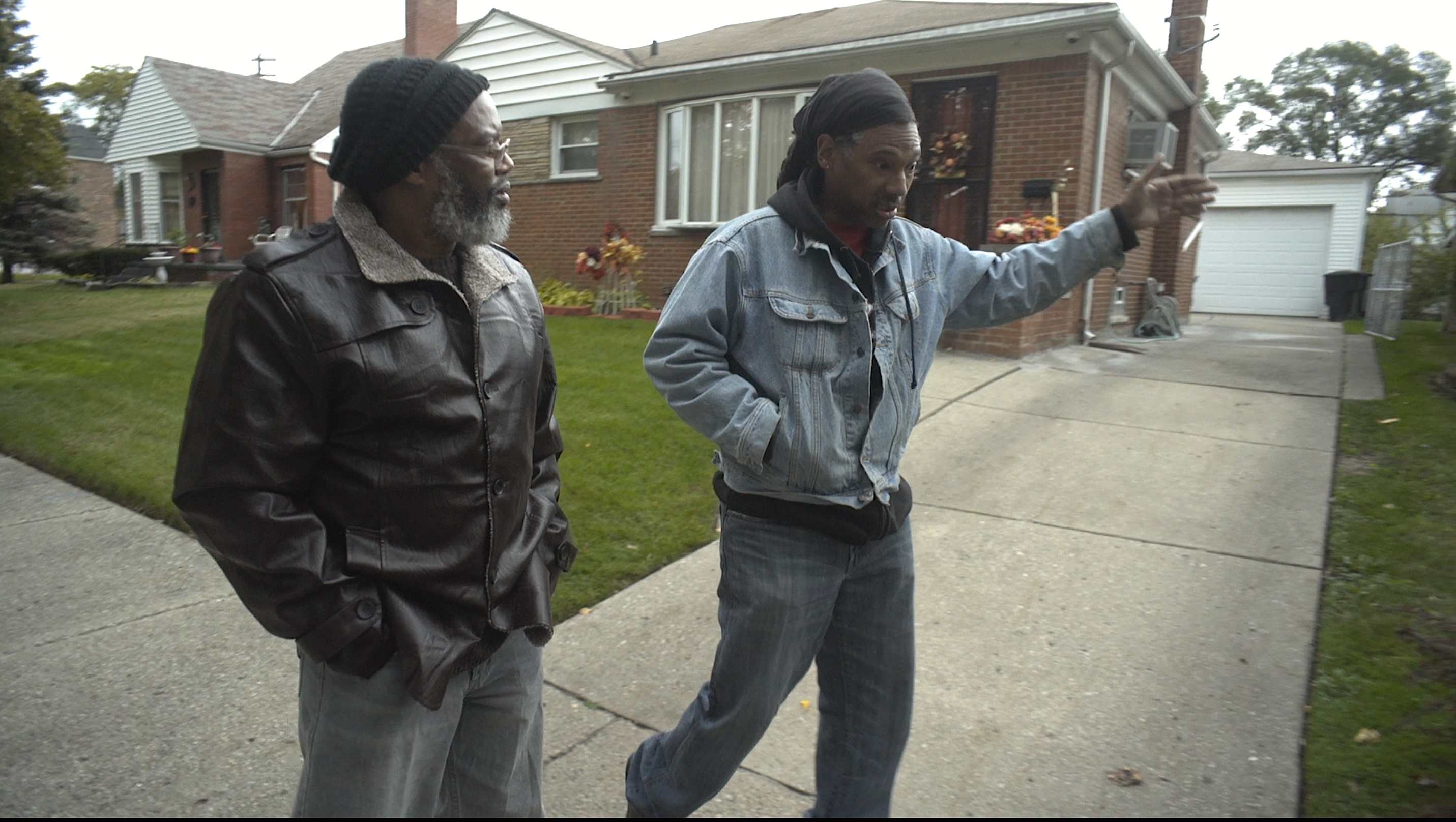
Pleading guilty even when you’re not; is that justice?
First in an occasional series
What stands out about Jeffrey Johnson is nothing at all. He is a soft-spoken average African American male of average height, average appearance, and average intelligence. That is who he is today, at age 61, and that is who he was 40 years ago when he was arrested inside his home at night after shoveling snow in front of his house for a murder that he has insisted for decades he did not commit.
Judging by various facts of the case, not to mention several witnesses who saw another man leaving the scene of the crime who they still swear 40 years later was not Jeffrey, it appears there is more than a possibility that Johnson has spent the majority of his life behind bars paying the price for a heinous act committed by someone else. Add that to the fact that, prior to his arrest, Johnson had a spotless criminal record without so much as a traffic ticket. And throughout his 40 years of incarceration, he has not had a single incident deserving of reprimand. As a matter of fact, Johnson received a commendation for saving the life of a prison guard during a prison riot, escorting him to safety. So Johnson not only has a spotless record in his life prior to arrest, but for all 40 years since that time.

Chris Buckingham, a lifelong friend of Jeffrey and of the family, who also lived in the neighborhood at the time of the shooting (he played in a band with one of Jeffrey’s brothers), was actually walking nearby when he heard the gunshot, close enough to be scared that “that could have been me who got shot.” Almost immediately following the loud blast, he saw someone running away who did not look at all like Jeffrey. He was not the only witness to offer a similar account, plus Jeffrey’s sister Myra remembers Jeffrey banging on the front door of their home almost immediately after she heard her father say, “that sounds like a gunshot.” It was Jeffrey who made the phone call to police, and if Myra’s account is accurate of how quickly Jeffrey appeared at the front door, it would have been impossible for him to be the shooter and travel that distance from the scene of the crime to the front door in such a short period of time. It also seems strange that he would have immediately felt compelled to call the police.
All of which is exactly what makes Johnson’s case worth paying attention to, and why the Michigan Chronicle has selected his criminal case to report on in detail in periodic reports over the coming months into 2018. The story of Jeffrey Johnson is a harrowing demonstration of the challenges and flaws built into a plea-bargaining system that all too often encourages young African American men to accept guilt and cut a deal rather than clutter up the system by contesting the charges. In an overworked, overburdened criminal justice system, efficiency is too often valued over the lives and rights of the majority poor, black men who fall prey to that system.
The story of Jeffrey Johnson is what can happen to just about any average African American man living within reach of a system that often, for the sake of expediency, prefers to close cases rather than solve them. And as more than enough evidence shows, Detroit is hardly alone in this regard. From the September 2017 issue of Atlantic Magazine (“Innocence is Irrelevant”):
“This is the age of the plea bargain. Most people adjudicated in the criminal-justice system today waive the right to a trial and the host of protections that go along with one, including the right to appeal. Instead, they plead guilty. The vast majority of felony convictions are now the result of plea bargains—some 94 percent at the state level, and some 97 percent at the federal level. Estimates for misdemeanor convictions run even higher. These are astonishing statistics, and they reveal a stark new truth about the American criminal-justice system: Very few cases go to trial.”
And from The Marshall Project, published in October of 2017:
From the October 2017 issue of The Marshall Project, comes the article entitled When Race Tips The Scales In Plea Bargaining:
“Prosecutors have virtually unchecked power in the plea bargain process. It’s the power to take away freedom, destroy livelihoods, and tear families apart. Ultimately, it’s the power to devastate low-income communities already suffering from aggressive and discriminatory law enforcement tactics.”
In Jeffrey’s case, had he agreed to plead guilty to the murder of 15-year-old Kevin May nearly four decades ago, as the prosecutor was urging him to do, he most likely would have been released 12 to 15 years later and been a free man today. Well…let’s just say as free as a black man can be with a murder conviction hanging over his head in Detroit.
But Jeffrey refused to plead guilty. Absolutely refused. The prosecutor told Jeffrey that if he didn’t take the plea then he would throw the book at him. Jeffrey didn’t care. He wasn’t going to admit to killing someone when he knew he didn’t do it. Surely one day the truth would come out and he would be found innocent which, to his way of thinking at the time, would be a much better way to put everything behind him.
Jeffrey was found guilty of first degree murder, and he is now starting to think that maybe pleading guilty, regardless of whether or not he did the crime, was maybe the better way to go. Because all he wants now is to get out of prison. His mother and father, neither of whom ever believed for one minute that Jeffrey was guilty, are now both dead.
“They never thought Jeffrey had done this. All the way to the end,” said Myra Johnson, Jeffrey’s sister. “It was really hard on my mother. She cried about it a lot. Not only because Jeffrey was in prison but about the young man dying too (Kevin).”
He has no children and was never married. All that remain of his immediate family are his two brothers and a sister. His Uncle, Odis Buffington, now more than 80 years old, his father’s brother, has been fighting for Jeffrey’s release relentlessly for more than two decades.
What eats at Jeffrey as much as – and perhaps more than – anything else, is the fact that if he had lied and said that he shot and killed Kevin May on that cold winter’s night so long ago, he would not be behind bars right now. Or, even worse, if Jeffrey had actually killed the young man for real, and then plead guilty to the crime? He still would be out.
But because he made the mistake of insisting on telling the truth, and refused to even consider changing his story until way too late, Jeffrey has spent the majority of his life in prison.
There has to be something wrong with that.
The Michigan Chronicle first reported on Jeffrey Johnson’s case in a two-part series I wrote that appeared in the paper 12 years ago. This ongoing report, revisiting the case of Jeffrey Johnson, will be done in print, online, and also on television in cooperation with reporters from Detroit Public Television, a fellow Detroit Journalism Cooperative member.